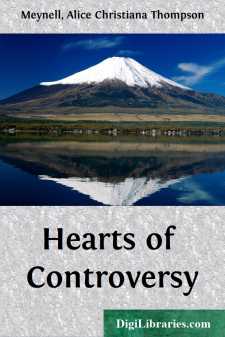Categories
- Antiques & Collectibles 13
- Architecture 36
- Art 48
- Bibles 22
- Biography & Autobiography 813
- Body, Mind & Spirit 142
- Business & Economics 28
- Children's Books 15
- Children's Fiction 12
- Computers 4
- Cooking 94
- Crafts & Hobbies 4
- Drama 346
- Education 46
- Family & Relationships 57
- Fiction 11828
- Games 19
- Gardening 17
- Health & Fitness 34
- History 1377
- House & Home 1
- Humor 147
- Juvenile Fiction 1873
- Juvenile Nonfiction 202
- Language Arts & Disciplines 88
- Law 16
- Literary Collections 686
- Literary Criticism 179
- Mathematics 13
- Medical 41
- Music 40
- Nature 179
- Non-Classifiable 1768
- Performing Arts 7
- Periodicals 1453
- Philosophy 64
- Photography 2
- Poetry 896
- Political Science 203
- Psychology 42
- Reference 154
- Religion 513
- Science 126
- Self-Help 84
- Social Science 81
- Sports & Recreation 34
- Study Aids 3
- Technology & Engineering 59
- Transportation 23
- Travel 463
- True Crime 29
Ceres' Runaway and Other Essays
Categories:
Description:
Excerpt
CERES’ RUNAWAY
One can hardly be dull possessing the pleasant imaginary picture of a Municipality hot in chase of a wild crop—at least while the charming quarry escapes, as it does in Rome. The Municipality does not exist that would be nimble enough to overtake the Roman growth of green in the high places of the city. It is true that there have been the famous captures—those in the Colosseum, and in the Baths of Caracalla; moreover a less conspicuous running to earth takes place on the Appian Way, in some miles of the solitude of the Campagna, where men are employed in weeding the roadside. They slowly uproot the grass and lay it on the ancient stones—rows of little corpses—for sweeping up, as at Upper Tooting; one wonders why. The governors of the city will not succeed in making the Via Appia look busy, or its stripped stones suggestive of a thriving commerce. Again, at the cemetery within the now torn and shattered Aurelian wall by the Porta San Paolo, they are often mowing of buttercups. “A light of laughing flowers along the grass is spread,” says Shelley, whose child lies between Keats and the pyramid. But a couple of active scythes are kept at work there summer and spring—not that the grass is long, for it is much overtopped by the bee-orchis, but because flowers are not to laugh within reach of the civic vigilance.
Yet, except that it is overtaken and put to death in these accessible places, the wild summer growth of Rome has a prevailing success and victory. It breaks all bounds, flies to the summits, lodges in the sun, swings in the wind, takes wing to find the remotest ledges, and blooms aloft. It makes light of the sixteenth century, of the seventeenth, and of the eighteenth. As the historic ages grow cold it banters them alike. The flagrant flourishing statue, the haughty façade, the broken pediment (and Rome is chiefly the city of the broken pediment) are the opportunities of this vagrant garden in the air. One certain church, that is full of attitude, can hardly be aware that a crimson snapdragon of great stature and many stalks and blossoms is standing on its furthest summit tiptoe against its sky. The cornice of another church in the fair middle of Rome lifts out of the shadows of the streets a row of accidental marigolds. Impartial to the antique, the mediaeval, the Renaissance early and late, the newer modern, this wild summer finds its account in travertine and tufa, reticulated work, brick, stucco and stone. “A bird of the air carries the matter,” or the last sea-wind, sombre and soft, or the latest tramontana, gold and blue, has lodged in a little fertile dust the wild grass, wild wheat, wild oats!
If Venus had her runaway, after whom the Elizabethans raised hue and cry, this is Ceres’. The municipal authorities, hot-foot, cannot catch it. And, worse than all, if they pause, dismayed, to mark the flight of the agile fugitive safe on the arc of a flying buttress, or taking the place of the fallen mosaics and coloured tiles of a twelfth-century tower, and in any case inaccessible, the grass grows under their discomfited feet. It actually casts a flush of green over their city piazza—the wide light-grey pavements so vast that to keep them weeded would need an army of workers. That army has not been employed; and grass grows in a small way, but still beautifully, in the wide space around which the tramway circles. Perhaps a hatred of its delightful presence is what chiefly prompts the civic government in Rome to the effort to turn the piazza into a square. The shrub is to take the place not so much of the pavement as of the importunate grass. For it is hard to be beaten—and the weed does so prevail, is so small, and so dominant! The sun takes its part, and one might almost imagine a sensitive Municipality in tears, to see grass running, overhead and underfoot, through the “third” (which is in truth the fourth) Rome....











